The farm has been owned by the Laimer family since 1895. The ancient estate in the heart of Lana in the South Tyrolean apple-growing region near Merano was first mentioned in 1297. The Pfefferlechner cellar, with food and products from its own production, has been around for 40 years and the house brewery since 2005. Martin Laimer founded the family business in 1981. His wife Christine comes from the hotelier family Mair, who run the Hotel Hohenwart in Schenna. She takes us on a tour of the Pfefferlechnerwelt premises.
The name Pfefferlechner hardly crosses the lips of an Italian easily. But when Italian epicureans set out to visit the Pfefferlechner farm in South Tyrol, they call it Albergo con vista sulla stalla (hotel with a view of the stable). We immediately understand the catchy paraphrase of the tongue twister during our visit. In the parlor, you have an unobstructed view through large windows into a former cow barn and of free-roaming rabbits. Wherever you go, there is a lot to see. Outside in the enclosure at the beer garden goats are the hit with children. A successful concept that also welcomes families who want to do something together.
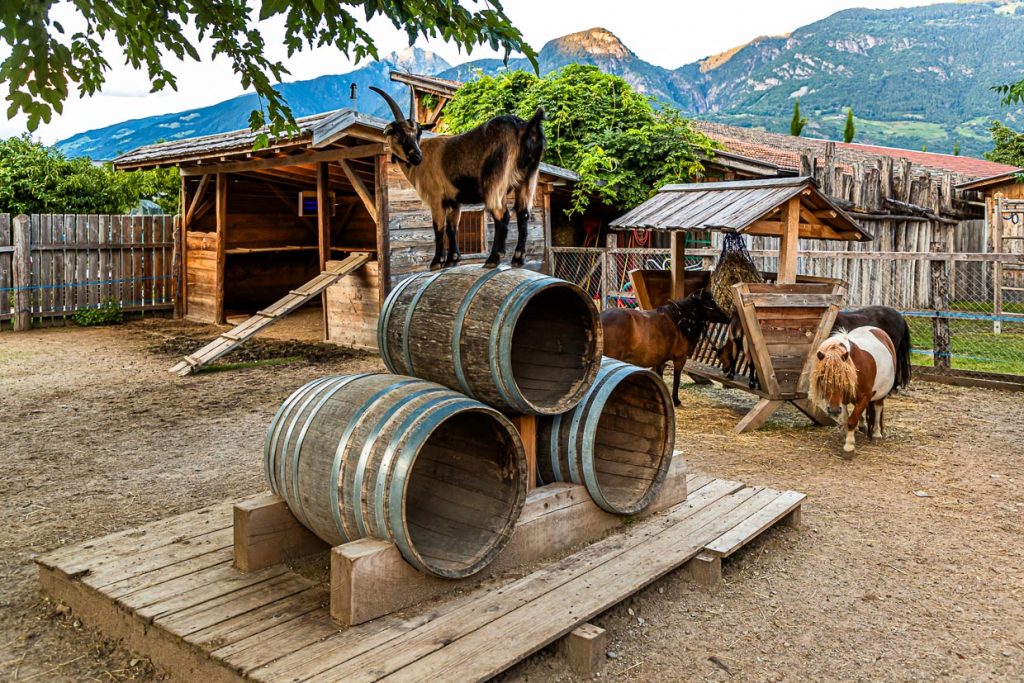
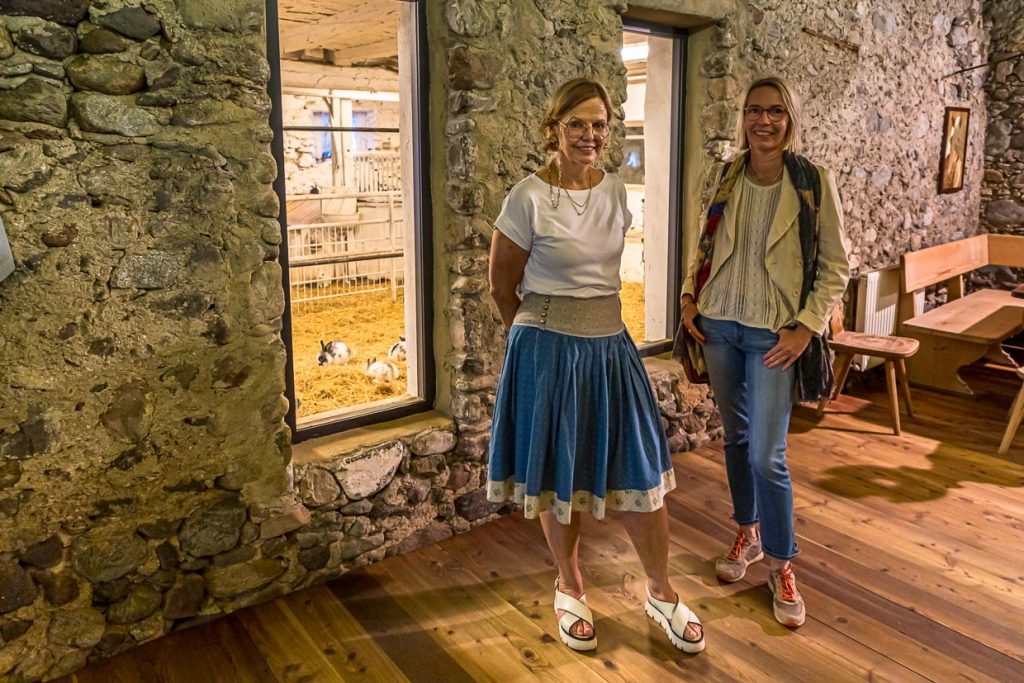
From the grist mill for the barley to the storage tank, everything in the Pfefferlechner can be seen and the fresh beers can be tasted between the brew kettle and the fermentation vat. The kitchen provides all kinds of hearty dishes made from regional ingredients to go with the beer. These include classics such as pork knuckle with cabbage salad or spare ribs in tomato salsa.
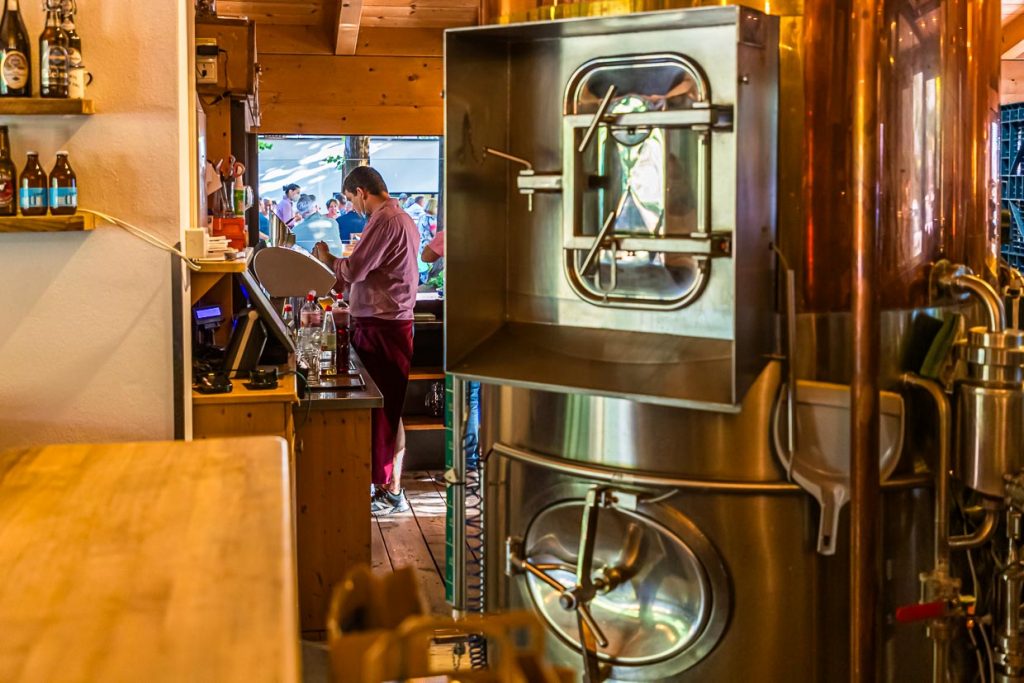
South Tyrol is an ideal growth market for craft beer, because Italians are epicureans who like to try new things, and regionality is an important theme in South Tyrol. Discovering culinary diversity here also includes beer. Without being able to endanger the dominance of the Forst brewery, 17 South Tyrolean craft breweries now convince a clientele eager to discover new things.
The brewmasters Götz Spieth and Andrea Amellini implement the ideas and visions of the entire team in a co-creation approach and ensure long-term compliance with the quality standard.
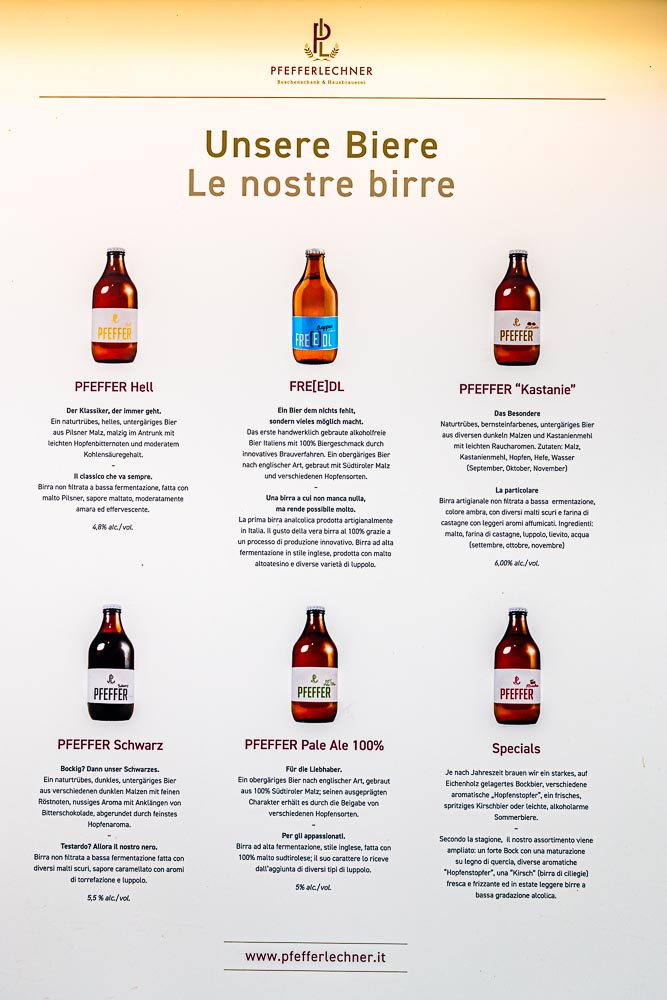
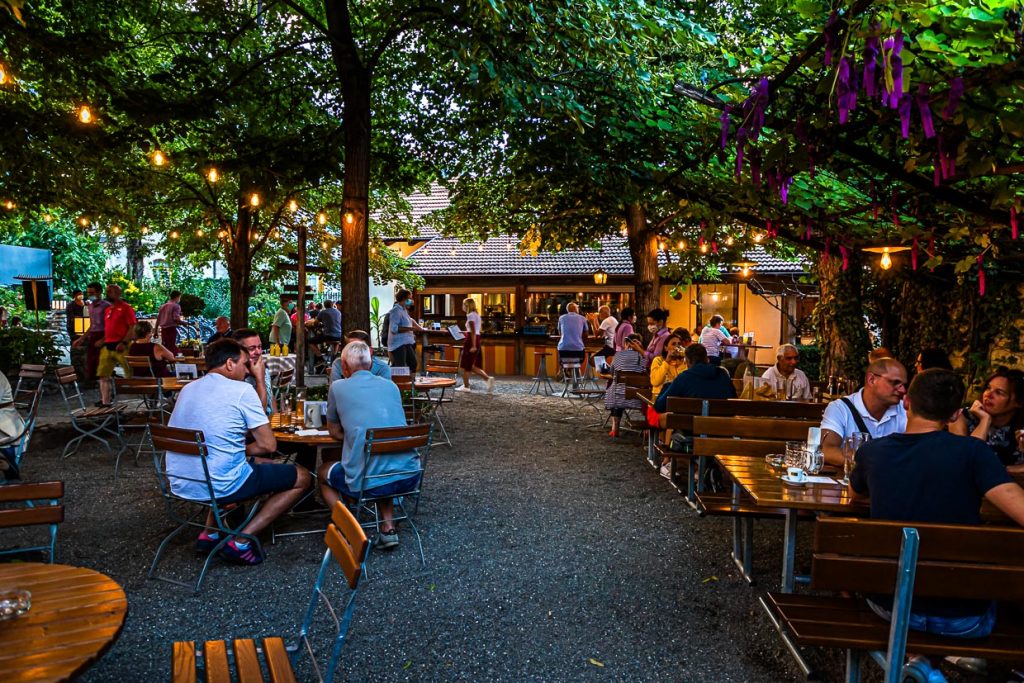
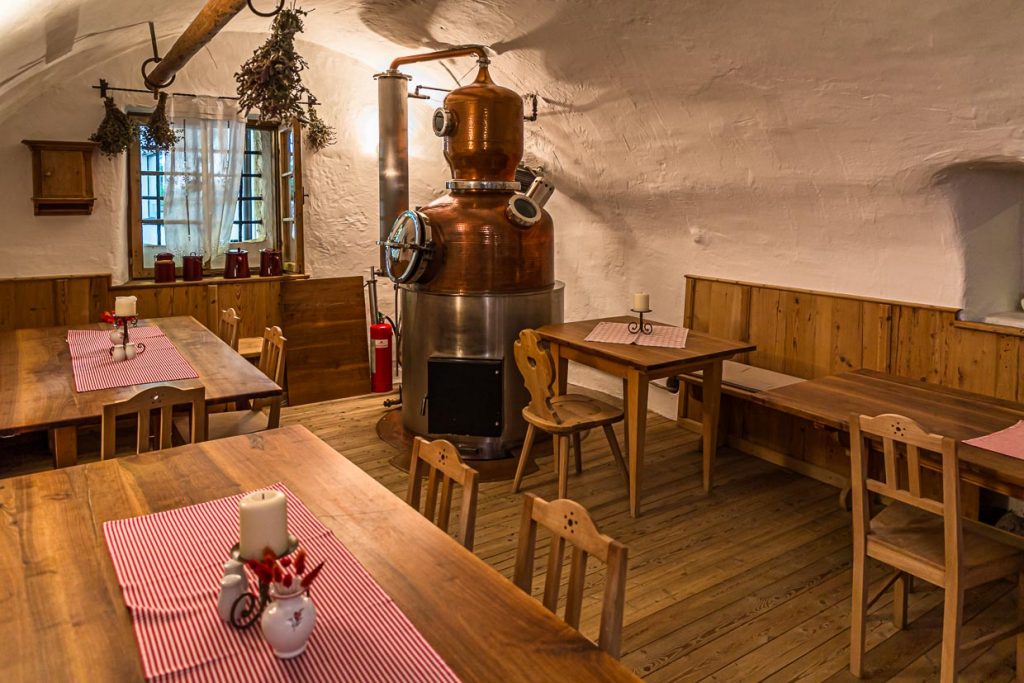
Pfefferlechner’s classic is a naturally cloudy bottom-fermented pale ale made from Pilsner malt with moderate carbonation. The Pfeffer Pale Ale is brewed top-fermented with 100% South Tyrolean malt with the addition of various hop varieties. In the fall, a special beer is the Pfeffer Kastanie, a naturally cloudy, amber-colored, bottom-fermented beer with light smoke aromas. Pfeffer Schwarz is a dark, bottom-fermented beer with a nutty aroma and hints of bitter chocolate. Depending on the season, strong bock beers aged on oak are also brewed with a variety of hop stuffings.
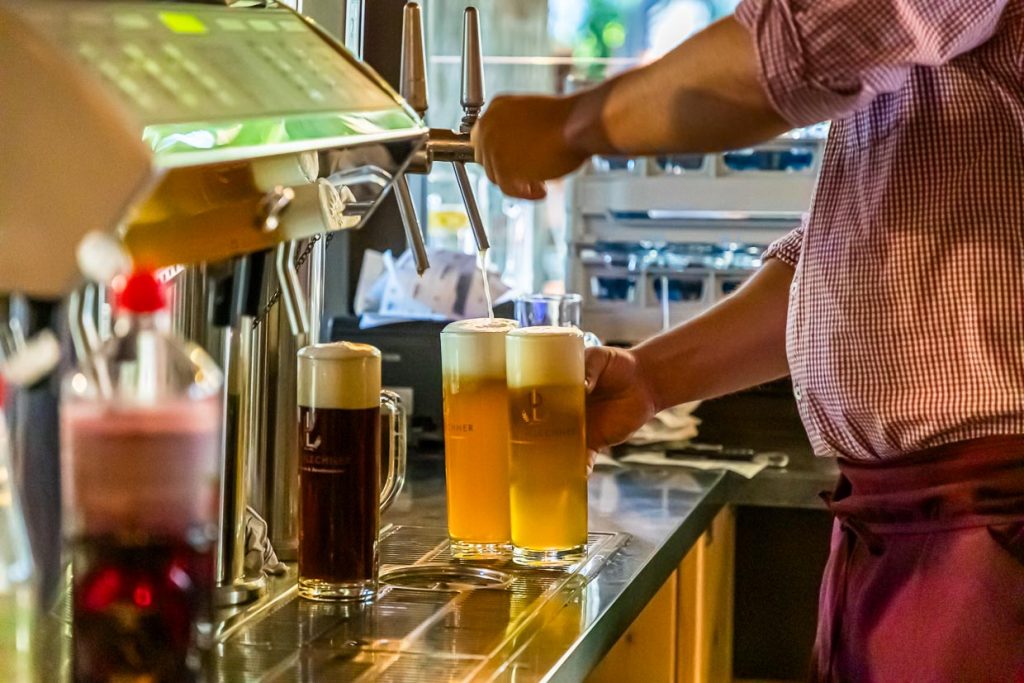
In 2019, the small home brewery then achieved a real coup. They secured a patent from the Technical University of Berlin for the production of an alcohol-free beer that hardly differs in taste from real beer. A special mix of microorganisms in the fermentation process produces the typical beer taste despite the very low alcohol content. Freedl is the name of the first non-alcoholic beer from South Tyrol, and its brand development is primarily the focus of daughter Maria-Elisabeth Laimer.
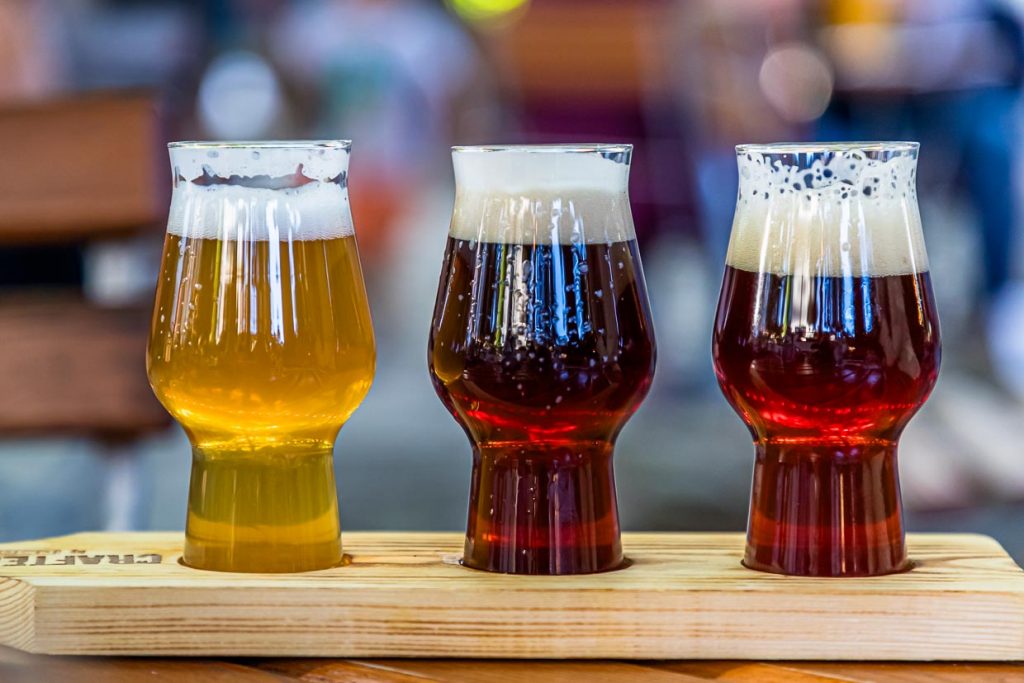
Maria-Elisabeth Laimer attaches great importance to feedback from different types of connoisseurs when developing the non-alcoholic brand. “Involving customers and our community is incredibly important to us. At Freedl Calma, we did various tastings in advance, even with people who are not in the typical beer environment, to develop the right recipe.” The next goal is to find the best flavorful combination of beer and basil to create a brilliant food companion.
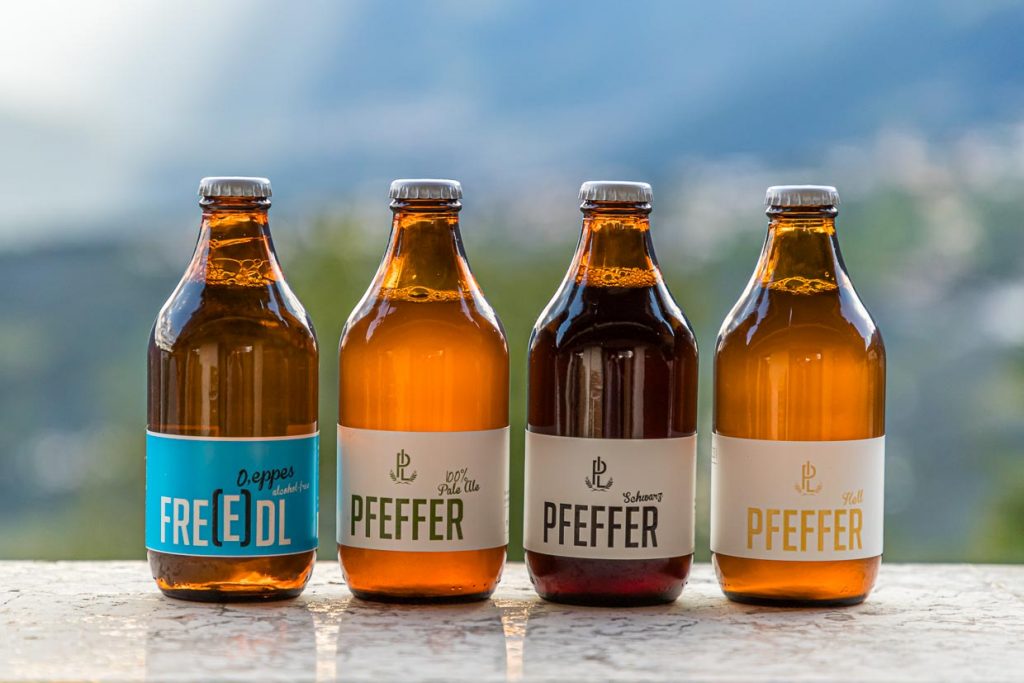
New is Freedl Calma, the first non-alcoholic basil beer, brewed at the intersection of German beer expertise and Italian lifestyle. Mountain basil is used, which grows at an altitude of 1,500 meters on the Stilfserjoch. The calming effect is said to make Freedl Calma the perfect after-work beer.
On the research trip, the cost of half board was not calculated by the Hotel Hohenwarth

